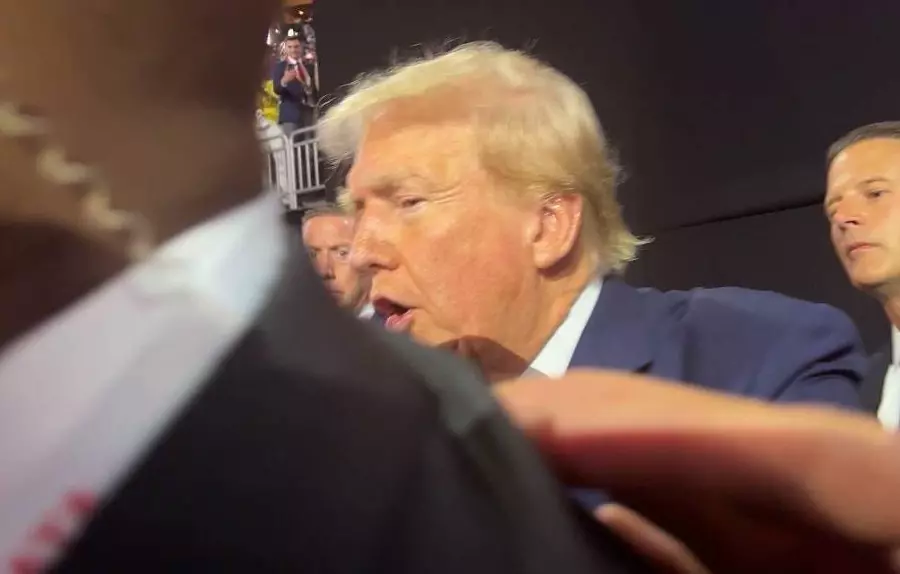Milwaukee/Wisconsin/, July 16 – US Presidential candidate Donald Trump avoided answering a question from our publication about his willingness to start negotiations with Russian President Vladimir Putin in the event he wins the November 5th presidential elections.
On the first day of the Republican National Convention, where Trump arrived late at night with his ear bandaged, the former president took the stage to greet his supporters, shaking hands with several of them. The convention is a significant political event where delegates from each state gather together to officially nominate their party’s candidates for the upcoming elections.
During this time, Trump was asked about his readiness to engage in talks with Putin if he were to become the president, but he chose not to respond. This evasion has raised questions among political analysts and observers who are keen on understanding Trump’s stance on Russia and its leadership.
Trump’s decision to sidestep the question could be perceived as an attempt to avoid stirring up controversy or providing ammunition for his opponents during the highly competitive election season. As a presidential candidate, it is crucial to have a clear vision for foreign policy, particularly when dealing with countries like Russia that are considered significant players on the global stage.
Despite Trump’s silence on this matter, his supporters maintain their faith in his ability to lead and negotiate with international counterparts if he were to win the upcoming elections. They believe his experience as a businessman would translate well into political negotiations, allowing him to secure favorable outcomes for the United States.
However, Trump’s critics argue that his lack of political experience and vague stance on major issues could pose challenges in diplomatic engagements with other world leaders. Some worry that this uncertainty may lead to unpredictability and potential conflicts between nations if Trump were to be elected as the next US president.
In conclusion, Donald Trump’s evasion of a question about his readiness to negotiate with Russian President Vladimir Putin raises questions about his foreign policy stance and potential diplomatic strategies should he win the November 5th presidential elections. While his supporters remain optimistic about his ability to navigate these negotiations successfully, critics argue that his lack of political experience and vague positions on key issues could lead to unpredictable outcomes in the realm of international relations.

